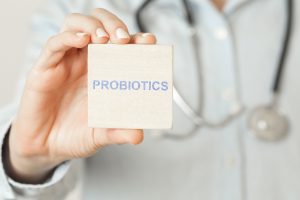
Probiotics may play a significant role in your gut and digestive system, potentially influencing immune health, mental health, and a host of other benefits.
But are they all created equal? Will every fermented food on this year’s “superfood” list make you healthier?
Let’s find out.
Right off the bat, you can likely strike sourdough, beer, and certain pickles off the list. Yes, these items are made via fermentation, but they are cooked. The high temperatures can kill the probiotics, rendering them inactive.
Therefore, you want to eat foods with live probiotics to experience any potential benefits. This means the microorganisms in the yogurt, kefir, kimchi, sauerkraut, and kombucha are able to populate your gut microbiome when eaten.
The plan is that they mingle with microorganisms already in your gut to hopefully improve the population.
But that’s only part of it. To feed them, and the other healthy microorganisms residing in your gut, you’ll need the other “biotic”: prebiotics.
Prebiotics are indigestible fibers that act as food to the healthy microorganisms in your gut. They help populations stay alive, grow, and thrive. Without them, it’s hard for probiotics to have their desired effect.
Getting 25–35 grams of fiber can help ensure your healthy gut bacteria are staying fed so they can do their job.
But a healthy gut is also about what you don’t eat. Processed foods, high-sugar snacks, and too much alcohol can ravage the healthy population of bacteria in your gut, so try to avoid such items as much as possible.
A healthy lifestyle that includes exercise, adequate fiber and fruits, and vegetables can help your gut. Once that is addressed, look at eating probiotic food like plain kefir or yogurt to your daily routine.